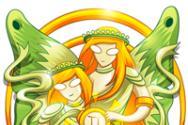The story of the song =evening bells=. Evening bells Analysis of the poem “Evening bells” by Kozlov
“Evening Bells” Ivan Kozlov
T. S. Vdmrv-oh
Evening bell, evening bell!
How many thoughts does he inspire?
ABOUT young days V native land,
Where I loved, where is my father's house,
And how I, saying goodbye to him forever,
There I listened to the ringing for the last time!I won't see brighter days anymore
My deceptive spring!
And how many are no longer alive
Then cheerful, young people!
And their grave sleep is strong;
They cannot hear the evening bell.I too should lie in the damp earth!
A sad chant above me
In the valley the wind will blow away;
Another singer will pass through it,
And it’s not me, but he will be
Sing the evening bell in thought!
Analysis of Kozlov’s poem “Evening Bells”
“Evening Bells” is the most famous poem by the Russian poet of the Romantic era Ivan Ivanovich Kozlov. It became famous thanks to the romance of the same name, whose mood is more similar to a funeral song. The music for it was written by Alexander Alyabyev (according to another version - an anonymous composer). The approximate year of creation of the work is 1827. Its first publication dates back to 1828. “Evening Bells” is a fairly free translation of the poem “Those evening Bells” by the Irishman Thomas Moore. The original, written in English, is part of the collection National Airs, published in 1818. It is interesting that Moore included the original source in the “Russian Airs” cycle, giving it the subtitle “Air: The bells of St. Petersburg.” Along with the poem “Those evening Bells”, the Irish poet’s collection published the notes of the melody authored by composer John Stevenson.
Kozlov was an Orthodox and church-going man. He knew very well the features of Christian services, including those related to the ringing of bells. In his poem we're talking about about the All-Night Vigil. A bell always rings before the start of this public service, which lasts from sunset to dawn. First, the bell sounds, which consists of striking a large bell. It is replaced by trezvon - a joyful ringing of all bells, carried out in three steps. It is no coincidence that Kozlov’s poem consists of three stanzas. Each of them contains six lines that rhyme in pairs. Three stanzas can be compared with three bells included in the trezvon. At the same time, the pairs of rhyming lines are comparable to the voices of individual bells.
When publishing “Evening Bells,” Kozlov did not make a note about the translation, which is quite strange. Apparently, the poet considered the poem an original work, a kind of creative reworking of “Those evening Bells” by Thomas Moore. But Ivan Ivanovich provided his version of the Irish poet’s work with a dedication to Tatyana Semyonovna Weidemeyer, a close friend of the Kozlov family.
The Russian text of “Those evening Bells”, thanks to its amazing musicality, interested not only Alyabiev. Other composers also turned to him, each with their own emphasis. Today, the melodies of Vasily Zolotarev, Yuri Arnold, Alexander Grechaninov, Pavel Vorotnikov, Nikolai Bakhmetyev, Varvara Saburova are known.
It is well known that the text of “Evening Bells” is a brilliant translation into Russian of the poem of the same name “Those Evening Bells” by Thomas Moore, an English poet of Irish origin. This translation was made by the Russian poet, contemporary of A.S. Pushkin, Ivan Ivanovich Kozlov. The music for I. Kozlov’s poems, according to many researchers, was written by A.A. Alyabyev, after which “Evening Bells” became and remains to this day one of the most beloved Russian romances. So beloved that in a number of popular literary publications it is called a folk song.

“Evening Bells” (the story of a popular Russian romance)

In order not to go far from the topic, I will allow myself to cite just a few short facts from the life and work of the author of the Russian text of the song “Evening Bells”.

I.I. Kozlov (1779-1840) was born in the famous noble family, his father was Secretary of State under Catherine II. The boy received a good upbringing and education; from childhood he spoke French and Italian. From the age of five he was enlisted in the Izmailovsky Life Guards Regiment, but military service practically did not pass, and at the beginning of the reign of Paul I he resigned. Contemporaries wrote about him at this time as a dandy, a wonderful dancer and boyfriend.

However, by 1820 he was struck by a serious illness - paralysis of the legs, and then blindness. The financial situation also changed for the worse. The illness confined him to bed. But, according to contemporaries, he found the strength at this time to learn English and German languages, began to write poetry, and then translate poetic works from European languages into Russian and from Russian into European languages. His daughter read the original texts to him, and he told her the translation, or dictated his compositions. I.I. Kozlov’s translations were distinguished by their magnificence, and his own poems were equally talented.
“Evening Bells” is one of the most talented translations. This translation was first published in the almanac “Northern Flowers” (1828), and the romance “Evening Bells” with music by A.A. Alyabyev was published in Moscow in the cycle “Northern Singer” in the same 1828.
This part of the story can be ended with a quote from V. Osipov: “Evening bells, evening bells! He brings up so many thoughts”... You eat (or listen - A.Sh.) and a lump comes to your throat. It's sad, but there is no hopelessness in my soul. Don't give up. The song reminds us that we are all mortal, and at the same time awakens in our souls best feelings. Love for the native land, for the father's house. Words awaken memories of people who were next to you, once full of strength and energy, cheerful, young. Now they can’t hear the evening bell, but we remember them, we remember only the best - that’s how it is in Rus'.”
It would seem that these words could complete the story of the song “Evening Bells,” but the known and the little-known do not end there.
There are many reports that the text of T. Moore "Those Evening Bells" is a translation into English language from an ancient Greek original.
And one more mystery. T. Moore's poem "Those Evening Bells", published by the author in the first collection of "National Airs", published in 1818, was subtitled "Air. The bells of St. Petersburg". What does it mean?
There is no reliable explanation for the above subtitle. There is only an assumption that these poems were written to the music of the Russian song of the same name piece of music(arias or songs). This assumption is indirectly confirmed by the fact that in other “songs of peoples” in T. Moore’s collection one can find another “Russian song” (“Russian Air”).
And another guess. It is reliably known that the famous Russian public figure, historian and writer Alexander Ivanovich Turgenev (1784-1845), during his meeting with T. Moore in Europe, already had in his hands the collection “Northern Flowers” and a separate edition of poems by I.I. Kozlov for 1828. He could introduce T. .Moura. When parting, T. Moore wrote down his poem “Those Evening Bells” to A.I. Turgenev (this known fact). Maybe that's when this subtitle appeared? But A.I. Turgenev does not write anything about this in his notes.
No less interesting is the question of the Greek origin of the original source of the “Evening Bells”.
Its authorship is attributed to St. George of Athos (George of Iveron, St. George of Svyatogorets), in the world - George Mtatsmindeli, who lived in the 11th century.
George was born in Georgia in 1009 (according to other sources, in 1014). From the age of 7 he was introduced to monastic life. In 1022 he was sent to Constantinople, where he studied science for 12 years and received a comprehensive education. He returned to Georgia for a short time, and then went to venerate the holy relics of Palestine. He stayed in the monasteries on Black Mountain (near Antioch) and on Divnaya Mountain.
Since 1040, George has been in Greece, on Mount Athos, in the Iveron Monastery. Here he devoted his free time from divine services to poetic creativity and translation activities (translations of liturgical books and works of the holy fathers of the church from Greek into Georgian).
It is believed that the Athos chants of St. George of Athos, in particular the famous “Evening Bells,” were translated into European languages and T. Moore could have used them in his work.
But a reliable text of the “Evening Bells” by George Athos, as well as reliable data that such a text was known to T. Moore, has not been found.
Thus, this information from the history of the “Evening Bell” remains only a discussed version for now.
There have been several other posts published in the past regarding the history of the creation of Evening Bells.
Thus, during the years of passion for the work of T. Moore in Russia, the magazine “Telescope”, published in 1831-1836. N.I. Nadezhdin, published on his pages the article “Translation of I. Kozlov’s poem into English by Thomas Moore.” The article was anonymous, and it stated that this translation was made “... as if as a token of gratitude for the excellent assimilation by our literature of his (Moore - A.Sh.) “Insomnia,” “Romance” and some “Irish Melodies” of the English Anacreon ... " And further in the magazine the text of T. Moore’s original poem “Those Evening Bells” was given in the author’s edition of 1818.
In this case, the anonymous author of the Telescope article apparently simply did not know the date of the first publication of Those Evening Bells (1818), and this article is rather classified as a curiosity.
Messages of another kind also appeared in the literature. One of the reasons for their distribution was that I.I. Kozlov always published “Evening Bells” without reference to Thomas Moore. In this regard, some publicists, for example, A. Kalinovsky, in his work on the history of the Athos Monastery, considered I.I. Kozlov’s “Evening Bells” to be a direct translation from Greek of the church song of George of Athos. At the same time, A. Kalinovsky made a reference to manuscripts allegedly stored in the library of the Gelati Monastery (Georgia).
This version, however, cannot be considered correct for only one reason - according to experts, none of the works dedicated to Athos of that time (both Russian and foreign) could find any traces of the mentioned church song.
That is why, and also based on chronological considerations, it is believed - pending further discoveries and clarifications - that “Evening Bells” by I.I. Kozlov is a free and fairly accurate translation of Thomas Moore’s poem “Those Evening Bells”.
evening call, evening Bell
words by T. Moore, music by A. Alyabyev
translation by I. Kozlov
Evening bell, evening bell!
How many thoughts does he inspire?
About young days in our native land,
Where I loved, where is my father's house,
And how I, saying goodbye to him forever,
There I listened to the ringing for the last time!
I won't see brighter days anymore
My deceptive spring!
And how many are no longer alive,
Then cheerful, young people!
And their grave sleep is strong;
They can't hear the evening bell!
I too should lie in the damp earth!
A sad chanting above me
In the valley the wind will blow away;
Another singer will pass through it,
And it’s not me, but HE
Sing the evening bell in thought!
Evening bell, evening bell!
How many thoughts does he inspire?
About young days in our native land,
Where I loved, where is my father's house,
And how I, saying goodbye to him forever,
There I listened to the ringing for the last time!
I won't see brighter days anymore
My deceptive spring!
And how many are no longer alive
Then cheerful, young people!
And their grave sleep is strong;
They cannot hear the evening bell.
I too should lie in the damp earth!
A sad chant above me
In the valley the wind will blow away;
Another singer will pass through it,
And it’s not me, but he will be
Sing the evening bell in thought!
Analysis of the poem “Evening Bells” by Kozlov
Kozlov Ivan Ivanovich - poet, translator, friend of V. Zhukovsky and A. Pushkin. “Evening Bells” is one of his most famous works set to music.
The poem was written in 1827. Its author is 48 years old, he is a college adviser, a family man, and has been paralyzed and blind for many years. The poem is based on a free translation of the 1818 poem “Evening Bells” by Thomas Moore, which he included in the cycle of the so-called “Russian Songs”. I. Kozlov’s poems are slightly longer than the original, but maintaining the rhythm and structure of the original source. He did not consider himself only a translator; he published without crediting T. Moore. It was printed with dedication to a good friend of the Kozlov family, Tatyana Weidemeyer. By genre - song, elegy, by size - iambic tetrameter with adjacent rhyme, 3 stanzas. The composition is plot and circular. Except for two, all rhymes are closed.
The sound design of this poem is very expressive; already from the 1st stanza the reader seems to hear a bell ringing in a skillful arrangement of rhymes. The intonation is sad, but light. The author seems to bless everything: both the passing life and the course of life, which slowly takes away loved ones, cheerful, young people, the same course that will lead him to the grave. “Another singer” will sing “evening bells”: there is nothing to envy, the same end awaits him too. Only the eternal ringing of bells, a sign and symbol of hope for resurrection and the afterlife, will continue to be heard throughout the earth. The lyrical hero recalls how he was in a hurry to say goodbye to his native land, his whole life was spread out before him. “Where I loved”: he left behind his first love. For the “last time” at the church service. “My Deceitful Spring”: it promised so much, but flashed by so quickly. In a “damp grave,” he suggests, this ringing is not heard. “I won’t see brighter days any more”: in a figurative sense - I can’t return that time, in a literal sense - can be regarded as a hint at I. Kozlov’s blindness. “A sad tune”: perhaps the emotional color of this epithet is joyless, but we should not forget that the ringing of bells is not only a festive peal, but also measured bell strikes, reminiscent of eternity. Repetitions enhance the melodiousness of this work. Simplicity and deep meaning These lines are clear to every person.
“Evening Bells” by I. Kozlov caused a chain reaction in Russian art: composers, artists, poets took lines and images from it into service, wrote music, and created paintings of the same name.
Evening bell, evening bell!
How many thoughts does he inspire?
About young days in our native land,
Where I loved, where is my father's house,
And how I, saying goodbye to him forever,
There I listened to the ringing for the last time!
Issac Levitan “Evening Bells”, 1892
I won't see brighter days anymore
My deceptive spring!
And how many are no longer alive
Then cheerful, young people!
And their grave sleep is strong;
They cannot hear the evening bell.
I too should lie in the damp earth!
A sad chant above me
In the valley the wind will blow away;
Another singer will pass through it,
And it’s not me, but he will be
Sing the evening bell in thought!
Words: Ivan Kozlov.
Evgeny Dyatlov “Evening Bells”:
Evgenia Smolyaninova “Evening Bells”:
Choir of the Moscow Sretensky Monastery “Evening Bells”:
Interesting Facts
Music
Alexander Alyabyev (author of the famous “Nightingale”) wrote music for the poem “Evening Bells,” but the melody that is currently known most likely has a different authorship - it has not survived to this day, so sometimes they write “folk music”, and sometimes - after all, the authorship is attributed to Alyabyev. In addition to the melody familiar from childhood, there are a dozen more, written by different composers in the 19th and early 20th centuries.
Poetry
In 1827 (possibly in 1828) Ivan Kozlov wrote his poems “Evening Bells”. It is still believed that this is a free translation of a poem by Thomas Moore. But Kozlov himself, apparently, considered his work an original work. He has other poems - translations of Thomas Moore, and when they were published, they were indicated as "Imitation of Moore", or "From Moore." When publishing “Evening Bells” there was no such indication; there was a dedication to a family friend, Tatyana Weidemeyer.
EVENING CALL, EVENING BELL
Words by Ivan Kozlov
T. S. Vdmrv-oh
How many thoughts does he inspire?
About young days in our native land,
Where I loved, where is my father's house.
And how I said goodbye to him forever
I won't see brighter days anymore
My deceptive spring!
And how many are no longer alive
Then cheerful, young people!
And their grave sleep is strong;
They cannot hear the evening bell.
I too should lie in the damp earth!
A sad chant above me
In the valley the wind will blow away;
And it’s not me, but he will be
"Northern Flowers", 1828
Russian songs and romances / Intro. article and comp. V. Guseva. - M.: Artist. lit., 1989. - (Classics and contemporaries. Poetic book).
Translation of the poem "Those evening bells" by the Irish English-language poet Thomas Moore (1779-1852). Kozlov dedicated the poem to T. S. Weidemeyer, a family friend.
There are romances based on this poem by Alexander Alyabyev (1828), Varvara Saburova (1834), Joseph Genishta (1839), A. A. Rachmaninov (1840), P. M. Vorotnikov (vocal quartet, 1873), Alexander Grechaninov (1898), V. A. Zolotarev (mixed choir without accompaniment, 1905) and other composers. In the mid-twentieth century, the choral arrangement by A. V. Sveshnikov, used in the film “Kalina Krasnaya” by Vasily Shukshin, became very popular. The most famous melody of the song is of unknown origin and appears in songbooks as folk. Although in the literature the opinion is expressed that it goes back to Alyabyev’s romance (see: Anthology of Russian Song / Compiled, foreword and commentary by Viktor Kalugin. M.: Eksmo, 2005), but by ear it has nothing in common with Alyabyev’s song.
The most common motive:
How many thoughts he gives!
About young days in our native land,
Where I loved, where is my father's house.
I heard the ringing there for the last time!
And many are no longer alive,
Then cheerful, young people!
Evening call, evening Bell! Evening call, evening Bell!
He brings up so many thoughts!
Oh, those black eyes. Comp. Yu. G. Ivanov. Music editor S. V. Pyankova. - Smolensk: Rusich, 2004
OPTION
evening call, evening Bell
Folk music
Words by I. Kozlov
Evening bell, evening bell!
How many thoughts does he inspire?
About young days in our native land,
Where I loved, where is my father's house.
And how I, saying goodbye to him forever,
That's where I heard the ringing for the last time!
In the valley the wind will sing,
Another singer will walk along it.
And it’s not me, but he will be
Sing the evening bell in thought!
Transcript of the phonogram by Zhanna Bichevskaya, Zhanna Bichevskaya, album “Old Russian folk village and city songs and ballads”, Part 4, Moroz Records, 1998.
Melody Alyabyev:

Take my heart into the ringing distance...: Russian romances and songs with notes / Comp. A. Kolesnikova. – M.: Sunday; Eurasia +, Polar Star +, 1996.
Alexander Alexandrovich Alyabyev(1787, Tobolsk - 1851, Moscow)
Ivan Ivanovich Kozlov. Born on April 11, 1779 in Moscow into a noble noble family. From 1795 to 1798 he served in the guard, then retired and entered the civil service. In 1816 he received paralysis of his legs, and in 1821 he became blind.








